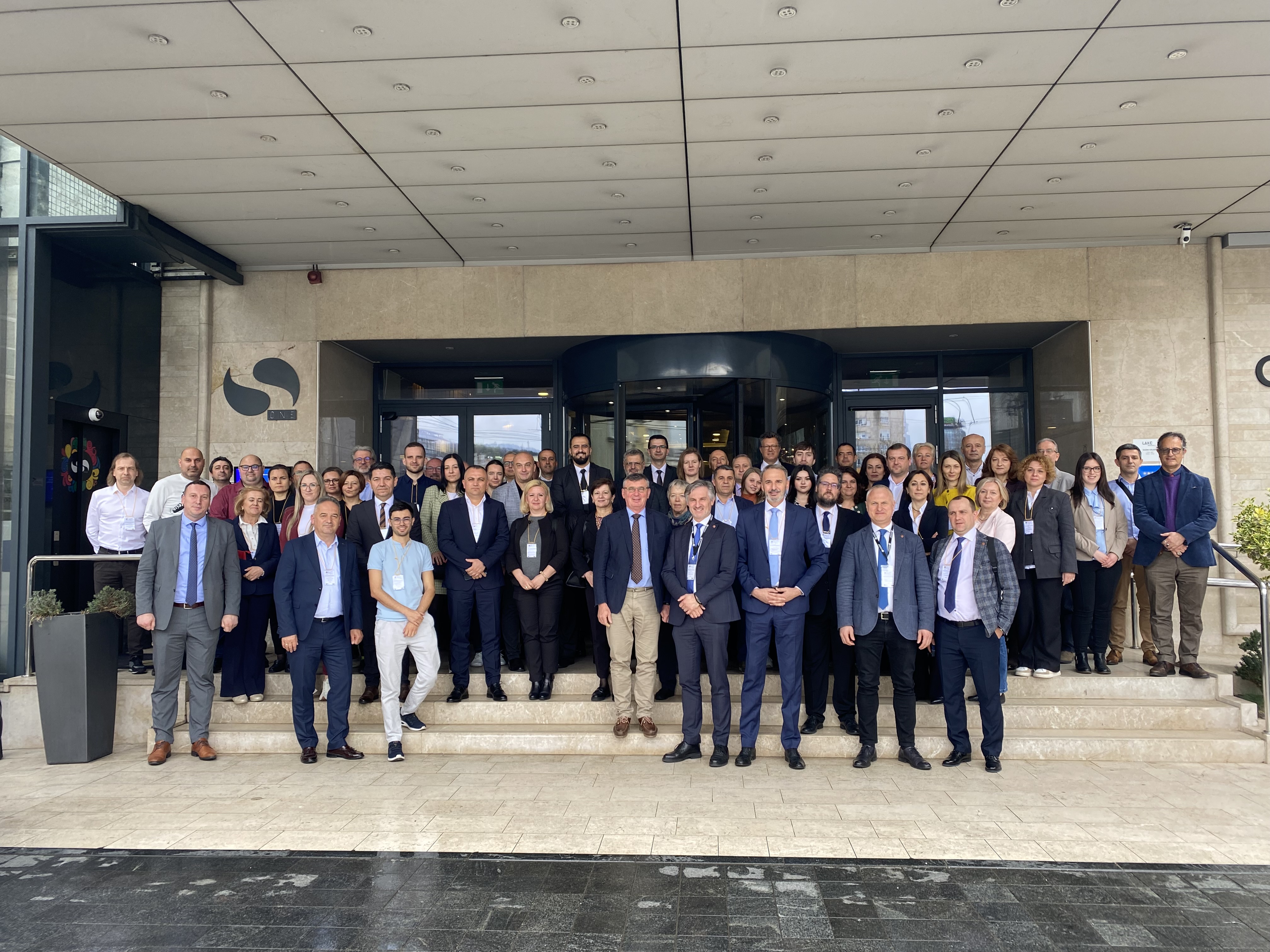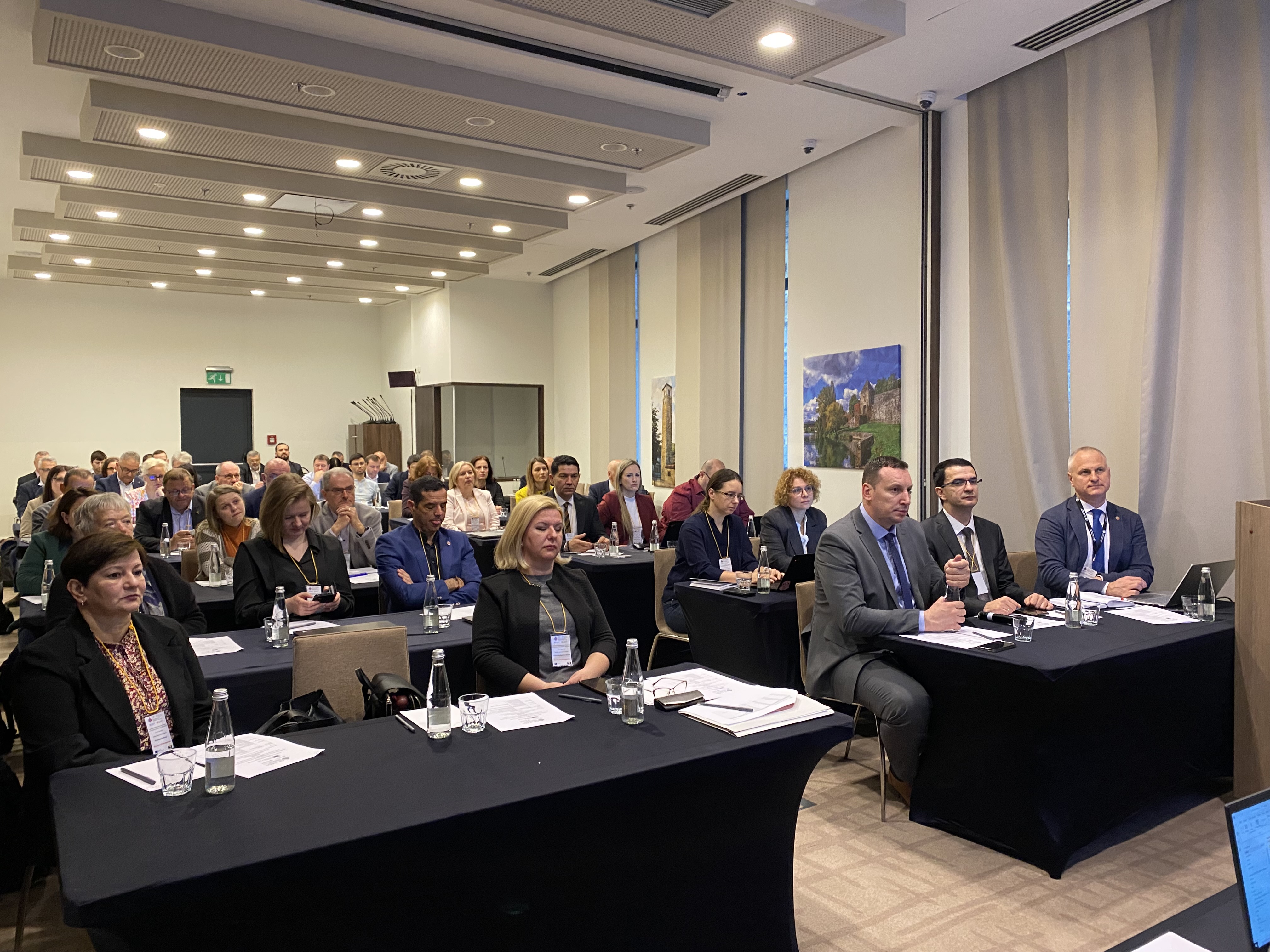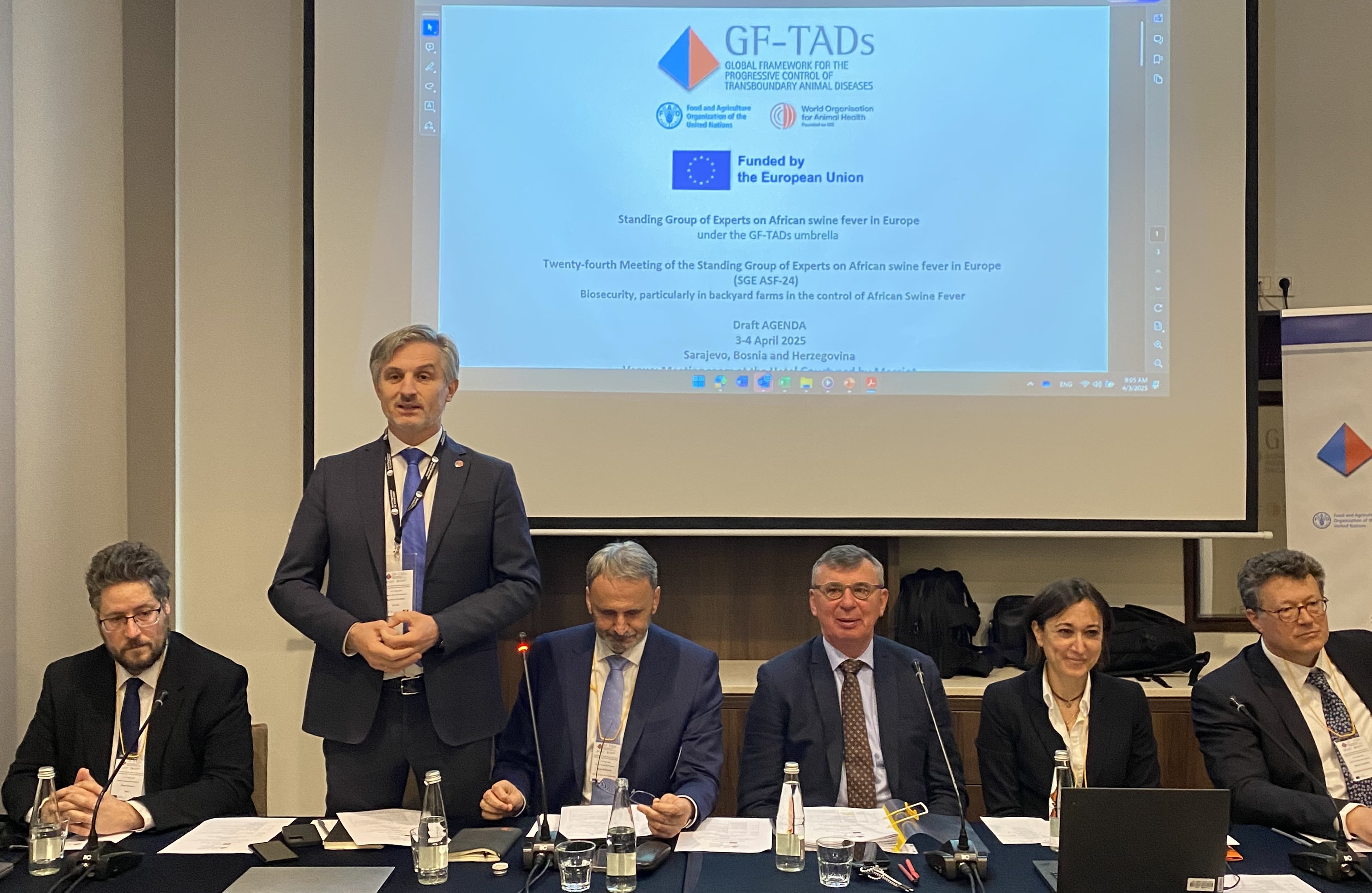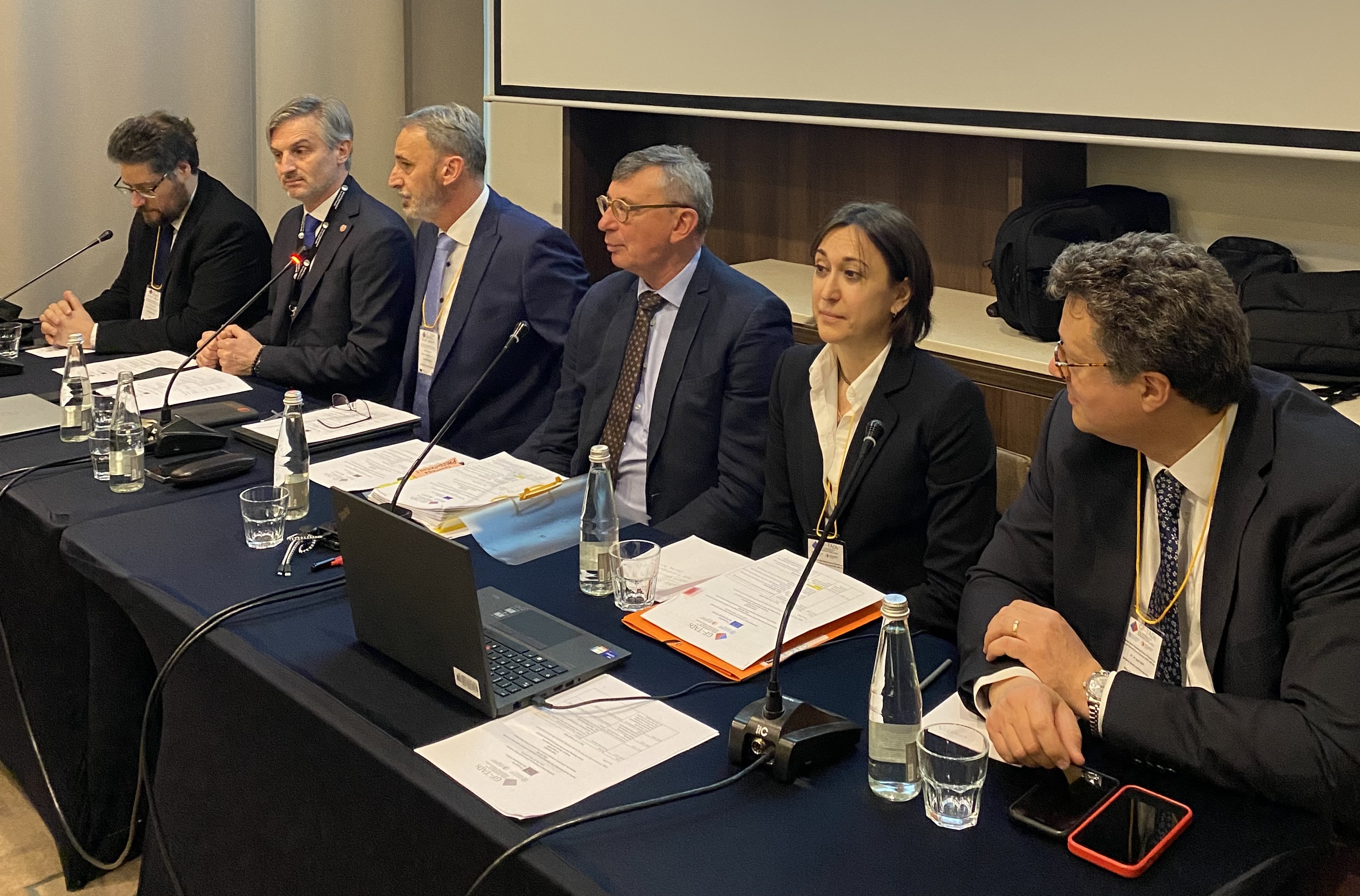The twenty-fourth meeting of the Standing Group of Experts on African Swine Fever (SGE-ASF) in Europe, under the umbrella of the Global Framework for the progressive control of Transboundary Animal Diseases (GF-TADs), took place in Sarajevo on 3-4 April 2025. The meeting was organized by the SGE–ASF Secretariat provided by the the World Organisation for Animal Health (WOAH) Regional Representation, and was chaired by Dr Bernard Van Goethem, President of GF-TADs for Europe. The meeting brought together 63 attendees including international experts, representatives from 28 WOAH Members, academia, research centers, and International Organisations to discuss the evolving ASF epidemiological situation in the European Region, and strategies for its prevention and control. The focus was on biosecurity in pig establishments.
The event was opened by Dr Budimir Plavsic, WOAH Regional Representative and Secretary of the SGE on ASF, along with Dr. Saša Bošković, WOAH Delegate of Bosnia and Herzegovina, the hosting country. Mr Nabil Gangi, the Food and Agriculture Organization of the United Nations (FAO) Deputy Regional Representative for Europe and Central Asia gave a recorded video welcome message to the participants.
Dr Van Goethem introduced the agenda, the aim of the SGE-24, and chaired the meeting.
Key discussions emphasized the critical role of biosecurity in controlling the spread of this devastating animal disease. Participants highlighted biosecurity as a key tool to prevent the introduction, development and spread of ASF to and within the domestic pig populations.
The agenda covered a wide range of topics, including global ASF activities, initiatives by WOAH and FAO, and the European Commission. Particular attention was paid to biosecurity measures, especially in small non-commercial, so called “backyard” farms, which are often identified as at higher risk for ASF introduction and further transmission.
Representatives of ASF-affected countries provided updates on the ASF epidemiological situation within their borders and shared experiences and challenges in implementing control measures. The meeting also featured presentations on specific projects and initiatives to strengthen veterinary capacity and biosecurity practices in the region, including an EU-funded twinning project in Bosnia and Herzegovina and an Italian-funded regional ASF project.
The WOAH National Focal Point for Communication on behalf of the WOAH Delegate and CVO of the Philippines, talked about the ASF situation in Southeast Asia and in the Philippines with focus on biosecurity, in particular in “backyard” farms.
Experts provided valuable insights into practical biosecurity measures and assessment systems, such as the “Bio-check” system presented by Ghent University (Belgium). The importance of laboratory biosecurity and biosafety procedures for accurate diagnosis and protection of staff was also highlighted, facilitated by the Istituto Zooprofilattico Sperimentale dell’Umbria e delle Marche (IZS) presentation. The presentation of the Friedrich-Loeffler-Institut (FLI) expert emphasized a specific philosophy or mindset around biosecurity, highlighting that effective risk reduction requires adopting a comprehensive set of attitudes and behaviours. This approach calls for a cultural shift, where biosecurity becomes an integral part of everyday practices across all activities. The expert from Switzerland demonstrated a simulation exercise involving different high-level stakeholders evaluating available resources over time.
The SGE-ASF recommended stronger, but flexible biosecurity measures adaptable to all pig sectors, enhanced laboratory biosafety, farmer awareness campaigns, and clear backyard farm definitions. Emphasis was placed on collaboration, surveillance, and outbreak response. Sweden’s recent ASF eradication was acknowledged, and continued support to affected countries via GF-TAD missions and prior recommendations was strongly encouraged.
The following countries / territories are members of the SGE ASF:
Belarus, Bosnia and Herzegovina, Bulgaria, Croatia, Czechia, Estonia, Germany, Greece, Hungary, Italy, Kosovo*, Latvia, Lithuania, Moldova, Montenegro, North Macedonia, Poland, Romania, Russia, Serbia, Slovakia, Sweden, and Ukraine.
*This designation is without prejudice to the position on status and is in line with UN Security Council Resolution 1244/99 and the International Court of Justice Opinion on the Kosovo declaration of independence.
Moreover, observers from Switzerland, Ireland, United Kingdom, Malta, Armenia and Georgia joined the meeting.
The meeting concluded with a strong commitment from participants to intensify efforts to implement sound biosecurity measures as a cornerstone in the fight against African swine fever in Europe.
Please find below the Report, Recommendations, presentations** and other materials for SGE ASF24 according to the Agenda:
* This designation is without prejudice to position on status, and is in line with UN Security Council Resolution 1244/99 and the International Court of Justice Opinion on the Kosovo declaration of independence



